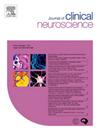PERSIMS:比较多发性硬化症患者和医生对生活质量的看法
IF 1.9
4区 医学
Q3 CLINICAL NEUROLOGY
引用次数: 0
摘要
背景:多发性硬化症(MS)治疗的进展改善了预后,但仍可能发生严重的残疾。了解医生和患者对MS及其治疗如何影响生活质量(QoL)的观点至关重要。我们旨在探讨多发性硬化症患者和神经科医生对多发性硬化症症状、治疗及其对生活质量的影响的看法。方法对成年多发性硬化症患者和有多发性硬化症护理经验的医生进行横断面在线调查。采用MS quality of life (MSQOL-54)量表评估患者的生活质量(QoL)。结果共有252名患者和53名医生完成调查。前一年的复发与较低的身体(p = 0.026)和精神(p = 0.022)健康评分相关。对疾病改善治疗(DMT)感到满意并参与其选择也与更高的物理(p <;0.001)和心理健康评分(p分别= 0.024和p = 0.002);这些评分在中度和高效dmt患者中没有差异(生理p = 0.582,心理p = 0.180)。患者和医生对生活质量的看法不同。患者优先考虑心理健康(p = 0.024),而医生关注身体方面对生活质量的影响(p = 0.030和p = 0.004)。患者重视社会支持信息(p <;0.001),并且认为疲劳更难以讨论(p = 0.039),而医生强调性功能障碍是难以解决的(p <;0.001)。医生优先考虑工作场所的适应性(p = 0.041),而患者希望更快地获得医疗服务,以改善生活质量(p <;0.001)。结论在MS护理中纳入患者报告的结果对于使治疗计划与患者的优先事项一致并改善其生活质量至关重要。本文章由计算机程序翻译,如有差异,请以英文原文为准。
PERSIMS: Comparing doctors and patients PERSpectives on quality of life In Multiple Sclerosis
Background
Advances in Multiple Sclerosis (MS) therapy have improved prognosis, but significant disability can still occur. Understanding the perspectives of doctors and patients on how MS and its treatment impact quality of life (QoL) is crucial. We aimed to explore the perceptions of MS patients and neurologists on MS symptoms, treatment, and their impact on QoL.
Methods
A cross-sectional online survey was conducted, targeting adult patients with MS and physicians experienced in MS care. Patients’ quality of life (QoL) was assessed using the MS Quality of Life (MSQOL-54) scale.
Results
252 patients and 53 doctors completed the survey. Relapses in the previous year were associated with lower physical (p = 0.026) and mental (p = 0.022) health scores. Being satisfied with disease-modifying treatment (DMT) and being involved in its choice were also associated with higher physical (both p < 0.001) and mental (p = 0.024 and p = 0.002, respectively) health scores; these scores were not different in patients under moderate versus high-efficacy DMTs (physical p = 0.582 and mental p = 0.180). Patients’ and doctors’ perspectives differ in what they value for QoL. Patients prioritized mental health (p = 0.024), while doctors focused on the impact of physical aspects on QoL (p = 0.030 and p = 0.004). Patients valued information about social support (p < 0.001) more than doctors and considered fatigue more challenging to discuss (p = 0.039), whereas doctors highlighted sexual dysfunction as difficult to address (p < 0.001). Doctors prioritized workplace adaptations (p = 0.041), while patients preferred faster access to healthcare to improve QoL (p < 0.001).
Conclusion
Incorporating patient-reported outcomes in MS care is essential to align treatment plans with patients’ priorities and improve their QoL.
求助全文
通过发布文献求助,成功后即可免费获取论文全文。
去求助
来源期刊

Journal of Clinical Neuroscience
医学-临床神经学
CiteScore
4.50
自引率
0.00%
发文量
402
审稿时长
40 days
期刊介绍:
This International journal, Journal of Clinical Neuroscience, publishes articles on clinical neurosurgery and neurology and the related neurosciences such as neuro-pathology, neuro-radiology, neuro-ophthalmology and neuro-physiology.
The journal has a broad International perspective, and emphasises the advances occurring in Asia, the Pacific Rim region, Europe and North America. The Journal acts as a focus for publication of major clinical and laboratory research, as well as publishing solicited manuscripts on specific subjects from experts, case reports and other information of interest to clinicians working in the clinical neurosciences.
 求助内容:
求助内容: 应助结果提醒方式:
应助结果提醒方式:


